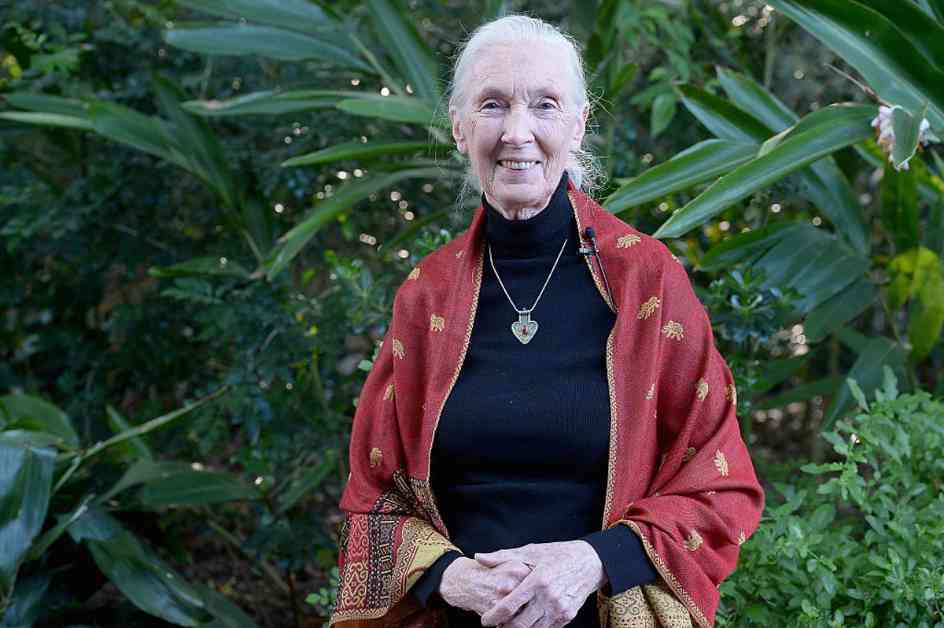Jane Goodall, a renowned zoologist, primatologist, and anthropologist, celebrated her 90th birthday this past April. Despite reaching this milestone age, she shows no signs of slowing down in her efforts to protect the environment and promote the work of her Jane Goodall Institute. Goodall, who is considered an expert on chimpanzees, continues to travel extensively, visiting different countries and speaking at various events to raise awareness and funds for conservation efforts.
Born in Hampstead, North London, Goodall often stays with her sister when she visits England. However, most of her time is spent on the road, moving from one hotel to another as she fulfills her commitments to her cause. In a recent interview, Goodall expressed her disappointment at the world’s missed opportunity during the Covid pandemic to reconnect with nature and prioritize environmental protection. Despite this, she remains hopeful that the younger generation, who form a significant part of her supporters, will take action to make a positive impact while there is still time.
Goodall’s journey in the field of primatology began in 1957 when she traveled to Africa and stayed at a friend’s farm. Her passion for animals, sparked by childhood experiences reading stories like Dr. Doolittle and befriending a stuffed chimpanzee, led her to groundbreaking research on chimpanzee behavior. By communicating with these animals and observing their interactions, Goodall made significant discoveries that highlighted the similarities between human and chimpanzee social behaviors.
Aside from her scientific contributions, Goodall’s advocacy work has inspired others to take action in conservation efforts. She established the Jane Goodall Institute in 1977, which supports research and conservation initiatives in Africa and beyond. Over the years, she has used her platform to empower young women to pursue careers in science and make a difference in the world.
Despite her age, Goodall remains active in her pursuits and continues to engage with audiences around the world. At a recent fundraiser, she captivated the crowd by demonstrating how to say her name in chimpanzee language, emphasizing the importance of non-verbal communication in understanding animals. When asked about the role of artificial intelligence in decoding animal communication, Goodall emphasized the value of observing and respecting animals’ natural behaviors rather than trying to impose human language on them.
As she reflects on her legacy and the future of her work, Goodall remains optimistic about the impact she can make in the world. Her latest book, “The Book of Hope: A Survival Guide for Trying Times,” co-authored with Douglas Abrams, explores themes of consciousness and the unknown beyond our mortal lives. Despite the uncertainties of the future, Goodall’s passion and dedication to environmental conservation serve as a source of inspiration for generations to come.
In conclusion, Jane Goodall’s lifelong crusade to protect nature at the age of 90 is a testament to her unwavering commitment to making a difference in the world. Through her research, advocacy, and outreach efforts, she continues to inspire others to take action and preserve the natural world for future generations. The impact of her work transcends borders and generations, leaving a lasting legacy that will endure for years to come.



























